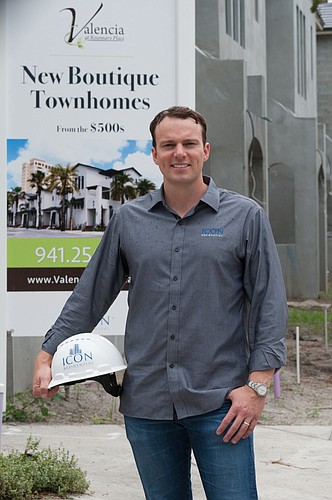- December 15, 2025
-
-
Loading

Loading

When Mike Bednarski began Icon Residential in 2014 with a pair of partners, nobody bothered to tell him that townhomes wouldn’t be accepted in Florida in a market dominated by single-family homes.
No one mentioned that homebuilders’ revenue doesn’t grow that wildly from year to year, either.